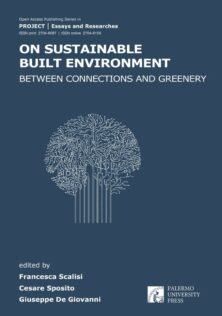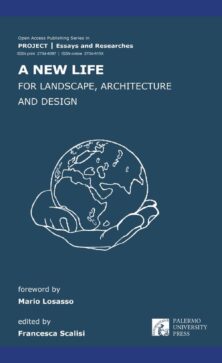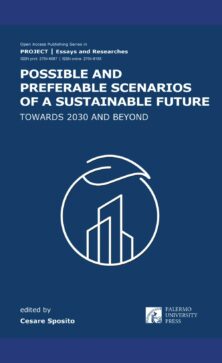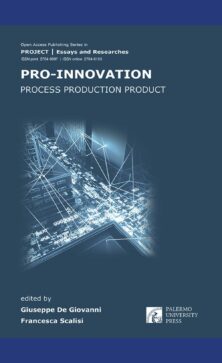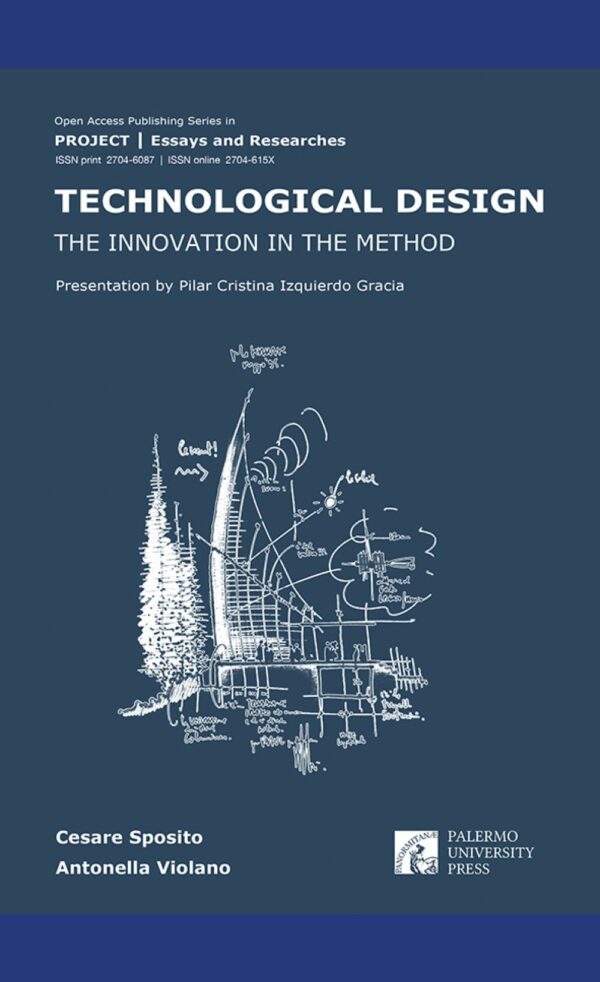
Technological Design
Cartaceo 28,00€ - Digitale 0,00€
This volume presents very interesting reflections on the centrality of Design in the discipline of Technology of Architecture and on the need to adapt the design method to the innovation of thought implemented by the research world. The theme of the Innovation in the Method of Technological Design is an interesting challenge that in this volume has been addressed considering the complexity of the levels of thematic depth, opening up to critical reflections, proposals for tools and illustration of case studies that show the breadth, relevance and multidimensionality of this issue.
The book presents reflections on the centrality of Design in the discipline of Technology of Architecture and on the need to adapt the design method to the innovation of thought implemented by the research world. The theme of the Innovation in the Method of Technological Design is an interesting challenge that in this volume has been addressed considering the complexity of the levels of thematic depth, opening up to critical reflections, proposals for tools and illustration of case studies that show the breadth, relevance and multidimensionality of this issue.
The era of digital and information technology have significantly influenced the way of doing and thinking in architecture and this evolution of design thinking takes on different connotations in training or professional practice. In the volume, it is transversally observable as the degree of innovation is to be found in the contents (ideas, techniques and procedures), as well as in the tools. The need to adapt the design method to the innovation of thought, carried out and encouraged by the world of research, obliges us to rethink the existing contents and training paths that must generate it and to privilege the didactic experiences in which the traditional procedure (frontal teaching, individual study, profit examination) is passed.
Since the labour market rewards those who demonstrate their ability to control the design process with creativity and predictability, concreteness and feasibility, sensitivity and respect for the transforming environment, the book proposes the centrality of the technological project, based on a technical culture, since it is able to guarantee the correct use of resources and an appropriate management of the transformation process. New paradigms of regenerative architecture, ‘cradle to cradle’ approach, methodological approach to the design of shelters in archaeological sites, building with water, materials for digital production in architecture are interesting design experiments wisely described: the development of such a debate can also lead to useful contributions to the development of technological thinking.
Cesare Sposito, Architect and PhD, is Associate Professor of Building Technology at the Department of Architecture, University of Palermo, Italy. He was Component of the PhD Board in ‘Recovery of Ancient Contexts and Innovative Processes in Architecture’, from 2007 to 2012. Since 2015, he has been a member of several scientific committees in international conferences and in publishing series. He is a co-founding member of the Euro-Mediterranean Documentation and Research Centre (DEMETRA Ce.Ri.Med.), member of the Italian Society of Technology (SITdA) and Editor in Chief of AGATHÓN (International Journal of Architecture, Art and Design). He carries out research on ‘Energy Saving of Buildings’, ‘Nanotechnologies and Innovative Materials’, ‘Protection Systems for Archaeological Sites’ and ‘Recovery of Abandoned Industrial Areas’.
Antonella Violano, Architect and PhD, is Associate Professor of Building Technology at the Department of Architecture and Industrial Design of the University of Campania ‘L. Vanvitelli’, Italy. She is Director of the Quality Centre of University Vanvitelli, Scientific Secretariat of Italian Society of Tecnology of Architecture (SITdA), member of RehabiMed Association (Spain), teacher in Professional Training courses, PhD and Masters. She carries out research on ‘Technological Innovation for Built Environment’ and ‘Management of Cultural and Environmental Resources’, with particular attention to the themes of Eco-compatible and Bio-based Materials, Sustainable and Energy Technological Design and Quality (ISO9001), Environmental (ISO14001) and Energy (ISO50001) Management Systems.
| Tipologia | Cartaceo, PDF |
|---|---|
| Autore | Antonella Violano, Cesare Sposito |
| Data di pubblicazione | Dicembre 2018 |
| Editore | PUP |
| ISBN | 978-88-31919-89-0, 978-88-31919-92-0 |
| Pagine | 152 |

